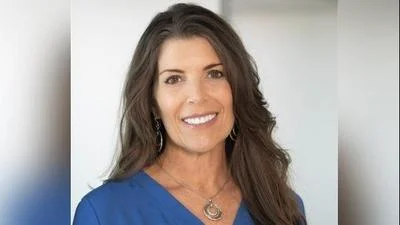school room | Pixabay (Pexels)
school room | Pixabay (Pexels)
This fall, the University of Missouri College of Education and Human Development will launch PAWS — Preparing Adults for Work and Society — a residential program for post-secondary students with intellectual and developmental disabilities.
One of only a few inclusive programs of its kind in the country, PAWS — which is modeled after a similar program at the University of Missouri–St. Louis — will promote job skills, independent living skills and social skills for a population that is significantly underemployed and underpaid compared to the general public.
“Our goal is to allow individuals who may have previously felt isolated from the community an opportunity to build meaningful relationships with their peers, identify their strengths and talents, and provide them with the skills needed to successfully enter the workforce,” said Maggie Center, director of the PAWS program. “In addition to PAWS students having access to a world-class education at MU and being around traditional students, we also want traditional students being around and learning about students with disabilities, as there is a poverty of experience when it comes to both sides.”
Starting in fall 2023 with a potential inaugural class of four MU students, participants will have access to the full undergraduate college experience by living in residential halls, taking university classes, eating in on-campus dining halls and participating in student organizations.
Virtual open houses for PAWS will be held via Zoom at 6 p.m. Jan. 25 and Jan. 31 at
https://umsystem.zoom.us/meeting/register/tJcrfu6hpj0uGNJBUuALvT9Lmc0jrUhfbHhB.
The two-year program will allow participants to take PAWS-specific classes, which will focus on job skills, healthy relationships and sex education, history of disability and self-advocacy, independent living, and social skills. Additionally, participants may have the opportunity to take traditional classes at MU, including courses in public speaking, theater, financial planning and human development.“We keep hearing from parents and school districts requesting this type of program, and to be one of the few universities providing it is special,” Center said. “The short-term benefits will be giving these students opportunities to live with peers their same age, have a roommate, decide if they want to join clubs or attend sporting events and get the complete college experience. The long-term benefits include building the self-advocacy and confidence to work and live independently in society.”Center, a certified trauma-informed educator, previously worked with The Resilience Project in Ohio, which aims to help teenagers and young adults recover from the trauma of abuse or neglect. At PAWS, they are collaborating with Erica Lembke, the faculty coordinator for the program and a professor of special education in the MU College of Education and Human Development.
“We want to create opportunities for the participants to strengthen their job skills and social skills so that when they leave the program, they can be more independent and be prepared for a full-time job,” Lembke said. “As a special education teacher since 1993, I have taught many students with intellectual disabilities, and to have this opportunity to positively impact these students who are attending college is personal for me.”
Center hopes the inaugural class of students will eventually become peer mentors to future participants.
“In addition to the academic experiences on campus, we also want the students to have some downtime to relax and have fun, as well as learn practical life skills that come with independent living, such as learning how to cook and do laundry, manage finances, exercise and build relationships,” Center said. “This program will be a tremendous asset to the MU community. We are learning that diversity is a strength when it comes to building an inclusive community, and we want to make it clear for students with disabilities that MU is a place where you are welcome, your voice matters and you can create positive change in the world.”
PAWS will also give parents of participants the opportunity to build trust that their child will be successful on their own.
“It can be hard for any parent to see their child go off to college and live independently,” Center said. “While it may be an adjustment, parents should know their student will be given the support and accommodations necessary to help them grow and succeed.”Note: Applications for the inaugural class will open soon and are due by March 1. More information can be found here.
Original source can be found here.


 Alerts Sign-up
Alerts Sign-up